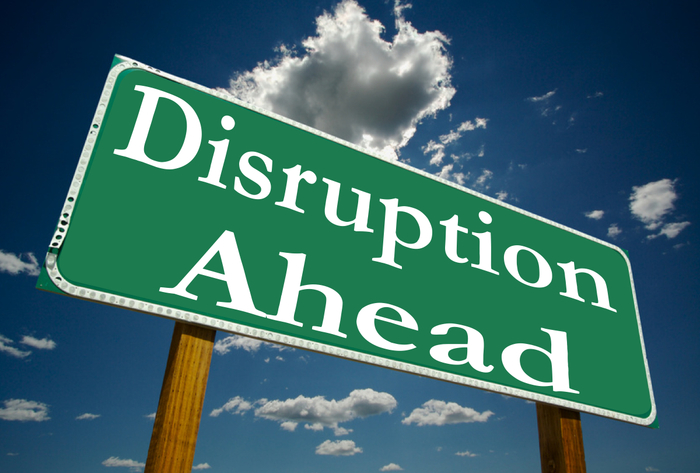If “Cloud” was the most overused word in 2016, then “Disruption” would be my pick for this year’s winner. It seems that the mantra for the new breed of workplace warriors is “disrupt, or be disrupted”, and anyone who isn’t turning their business on its head is surely going to end up in the dictionary between “K” for Kodak and “L” for Loser.
But what if it’s all a myth? What if a company’s performance has nothing to do with disruption at all? What if the real reason behind success dates back to 4,500BC when an innovative young Mesopotamian put an axel between two slices of a tree trunk, realised it was easier than carrying things on his back, and called it a wheel?
What is Disruption
I googled the definition of Disruption (once upon a time I would have looked it up in my Encyclopedia Britannica, but it appears they were disrupted by Wikipedia) and here’s what I found:
“…a radical change in an industry, business strategy, etc, especially involving the introduction of a new product or service that creates a new market…” and “…to break apart, and/or throw into disorder…”

Well there’s certainly no shortage of examples of that, the most common appearing on the opening slides of every vendor presentation I seem to attend nowadays… Uber/taxis, Netflix/movies, Airbnb/hotels. And there’s no argument that those businesses have created new markets and thrown traditional industries into disorder. But my question is this… did those companies set out to disrupt, or did they simply set out to create a product to address a customer problem?
Old and big vs Young and small
But isn’t that exactly what’s happening in the IT industry? Behemoth organisations are being disrupted by new young start-ups that are growing at a phenomenal rate. But 2% growth on a big number can still be bigger than 100% growth on a little number. What would you rather have? I guess that depends on your time frame and appetite for risk.
Disrupting yourself out of business
Coca Cola did the same thing in 1985 with “New Coke”. It lasted 79 days. And then there’s companies like Myspace and Friendster – at the time, very innovative and disruptive, but quickly overtaken by Facebook. Or the thousands of apps that are developed for IOS and Android that never make it beyond the meagre downloads from family and friends. The point is, for every company that changes the world, there are hundreds (if not thousands) that don’t. And unless you have a truly breakthrough idea, maybe you can still carve out a very successful business without disrupting anyone.
Focus on Innovation, not Disruption
Disruptive technologies are always innovative, but innovative technologies aren’t always disruptive. If your focus is innovation, especially if it’s around customer outcomes (ie. new, creative ways to solve customer problems or provide easier/cheaper ways to do something), then you will always be valued. But if your focus is purely on disruption just for the sake of change, then you may create something truly different, but end up in the dictionary between “N” for New Coke and “O” for Obsolete.


